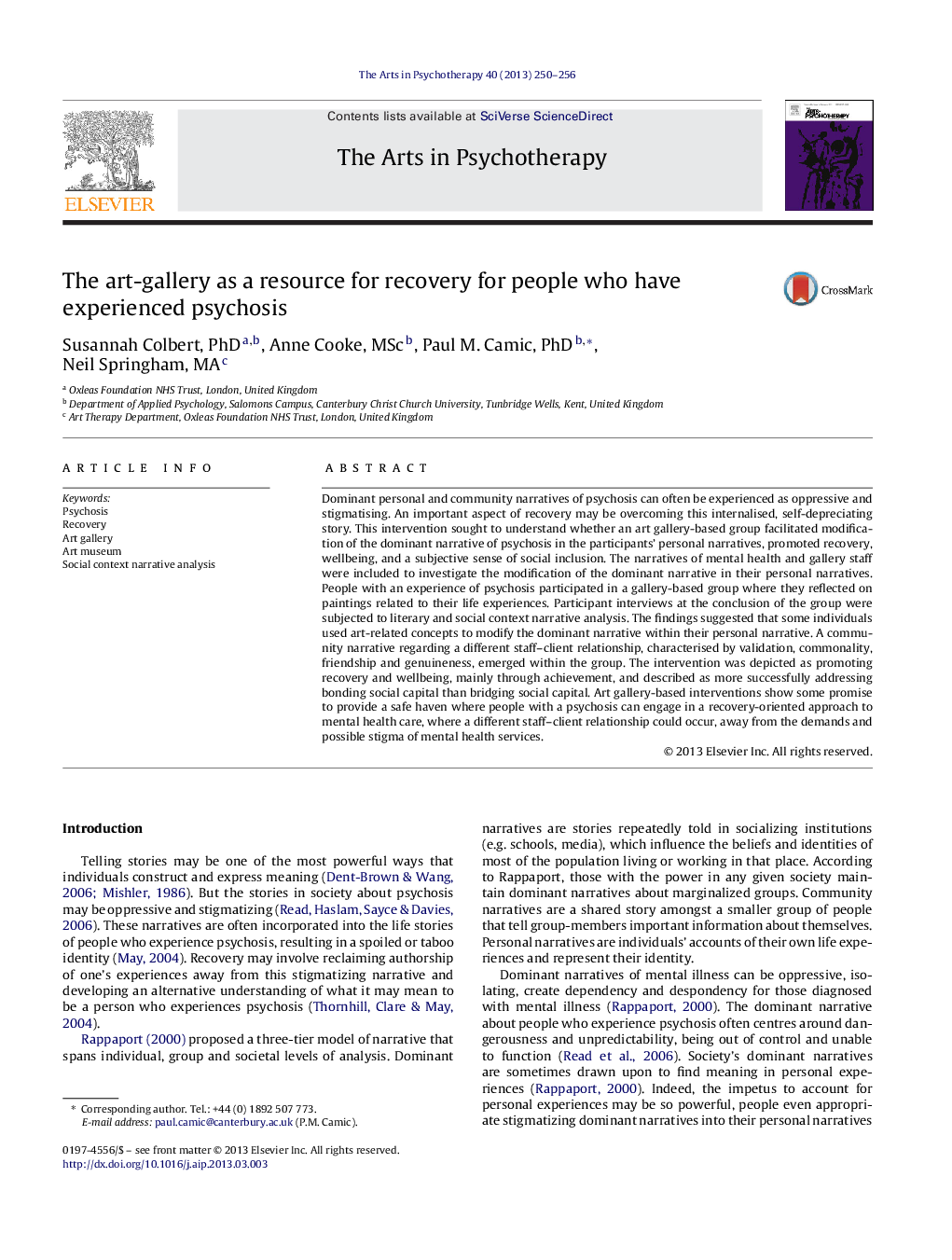| Article ID | Journal | Published Year | Pages | File Type |
|---|---|---|---|---|
| 343716 | The Arts in Psychotherapy | 2013 | 7 Pages |
•We piloted the first reported art gallery-based intervention for people with a psychosis.•We examined if a 4-session intervention could impact dominant narratives around psychosis.•Issues examined included recovery, wellbeing, and social inclusion.•The intervention showed promise as a way to re-examine personal and community narratives associated with psychosis.•There is an opportunity for allied health professionals to use art galleries for community-based wellbeing programmes.
Dominant personal and community narratives of psychosis can often be experienced as oppressive and stigmatising. An important aspect of recovery may be overcoming this internalised, self-depreciating story. This intervention sought to understand whether an art gallery-based group facilitated modification of the dominant narrative of psychosis in the participants’ personal narratives, promoted recovery, wellbeing, and a subjective sense of social inclusion. The narratives of mental health and gallery staff were included to investigate the modification of the dominant narrative in their personal narratives. People with an experience of psychosis participated in a gallery-based group where they reflected on paintings related to their life experiences. Participant interviews at the conclusion of the group were subjected to literary and social context narrative analysis. The findings suggested that some individuals used art-related concepts to modify the dominant narrative within their personal narrative. A community narrative regarding a different staff–client relationship, characterised by validation, commonality, friendship and genuineness, emerged within the group. The intervention was depicted as promoting recovery and wellbeing, mainly through achievement, and described as more successfully addressing bonding social capital than bridging social capital. Art gallery-based interventions show some promise to provide a safe haven where people with a psychosis can engage in a recovery-oriented approach to mental health care, where a different staff–client relationship could occur, away from the demands and possible stigma of mental health services.
